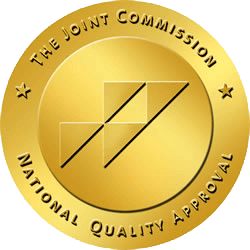One of the most challenging experiences for parents is dealing with a child who struggles with drug addiction. It’s a situation that can make you feel isolated and helpless. However, remember you’re not alone – many other parents face the same struggles. Sharing experiences and insights with other parents can provide emotional support and practical advice. If you’re looking for drug addiction help for parents, it may help to find a support group.
These parents may have navigated similar circumstances and can provide guidance on teen treatment programs in addition to offering strategies to cope with the unique challenges of helping a substance-addicted young adult. This camaraderie can prove instrumental in obtaining the right help for parents of drug-addicted young adults.
If your child needs teen treatment programs, contact Destinations for Teens at 877.466.0620 today.
Seeking Support from Other Parents: It Takes a Village
As a parent, you may feel overwhelmed and scared when realizing your child is struggling with drug addiction. You might wonder how it happened or what you could have done differently. These thoughts and fears are valid – but dwelling on them won’t help the situation.
Instead, consider reaching out to other parents who have been through similar experiences. They can offer a sense of camaraderie and empathy, helping you feel less alone in your struggles. Hearing about their journey can also give you hope that things will get better with proper help.
The Value of Shared Experiences
Talking to other parents allows you to share experiences and insights, which can provide invaluable support and reassurance. You’ll realize that other people understand what you’re going through, including feelings of shame, guilt, and fear.
Furthermore, these parents may offer practical advice on how to handle specific situations that arise while dealing with a drug-addicted young adult. This guidance can save you time and stress by avoiding trial-and-error approaches.
Finding Help for Parents of Drug-Addicted Young Adults
One of the most significant benefits of connecting with other parents is accessing resources and recommendations for getting help. They may have experience with teen treatment programs or know about support groups that can assist you in navigating through your child’s addiction.
The benefits of these support groups include:
- Learning about various treatment options available for drug addiction
- Receiving guidance on how to approach conversations with your child about their substance abuse
- Getting tips on self-care and managing your own emotions during the recovery process
- Understanding how to establish healthy boundaries with your child during their recovery process
- Gaining a sense of hope and encouragement from hearing about other parents’ success stories
Remember, as a parent, you don’t have to go through this alone. Together with other parents, you can navigate through the challenges of helping your child.
Understanding Treatment Options
As you begin the journey to help your drug-addicted child, it’s crucial to understand the different treatment options available. Rehabilitation programs for drug addiction typically fall under two broad categories: inpatient and outpatient treatment.
- Inpatient treatment – This intensive form of therapy requires your child to stay at a treatment facility for a specific period, generally ranging from 30 to 90 days. It provides a structured environment that allows young adults to focus entirely on recovery, free from the triggers and distractions of everyday life. These programs often include medical detox, psychotherapy, group counseling, and other therapeutic activities.
- Outpatient treatment – Outpatient programs offer more flexibility, allowing your child to continue their daily obligations, like school or work while receiving treatment. These programs typically involve several hours of weekly therapy, including individual counseling, group therapy, and, in some cases, family therapy sessions.
The proper treatment will depend on the specific needs of your child. Other parents who have navigated similar paths can provide firsthand recommendations and insights into these programs. Irrespective of the route you choose, it is essential to remember the journey to recovery is a
Contact Destinations for Teens for Teen Treatment Options
Dealing with a child struggling with drug addiction is emotionally exhausting, but talking to other parents can help ease the burden.
If your child needs teen treatment programs, contact Destinations for Teens at 877.466.0620 today. Our team of experienced professionals understands the unique challenges that come with youth addiction and can provide individualized treatment plans tailored to your child’s needs.


